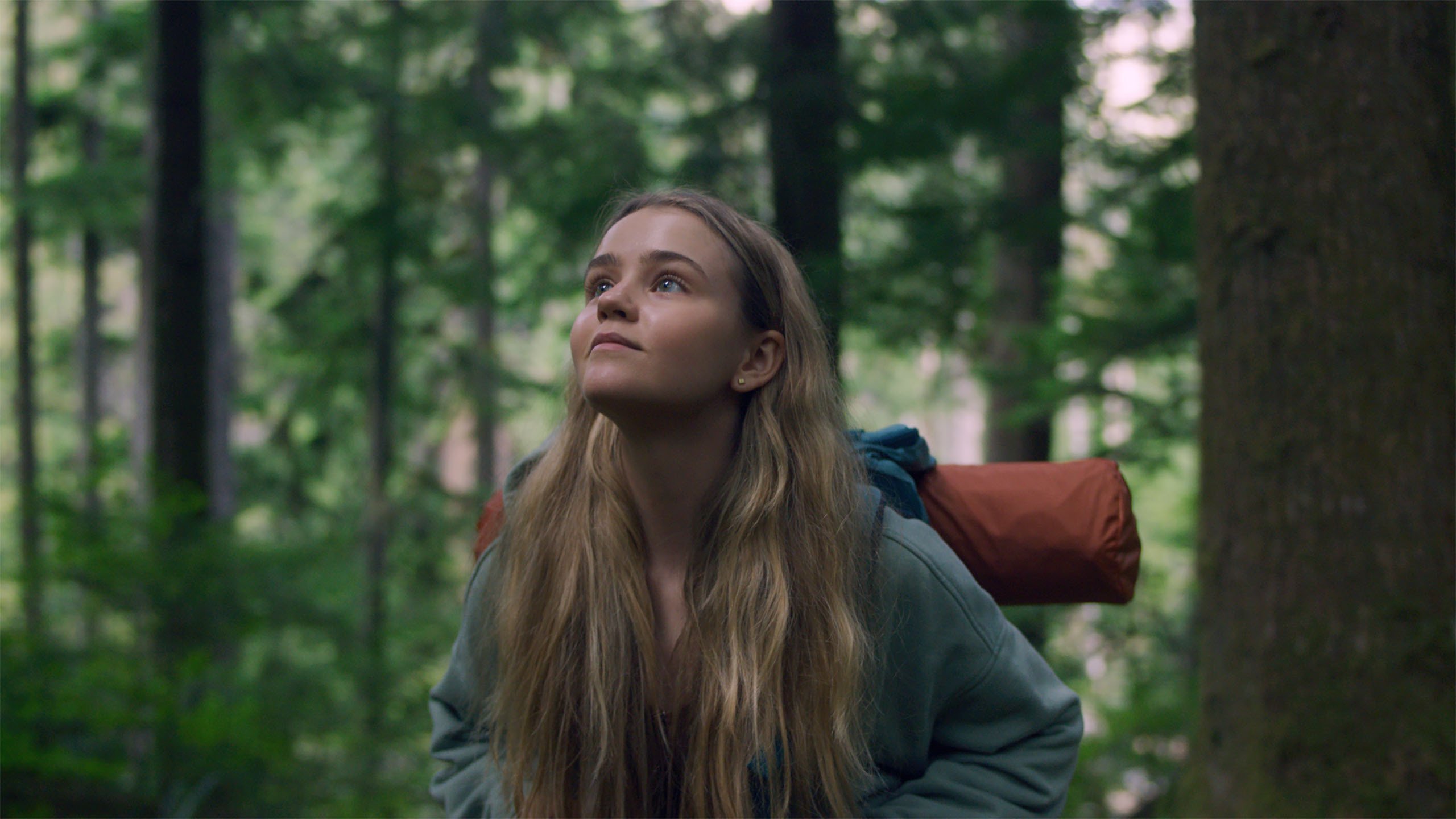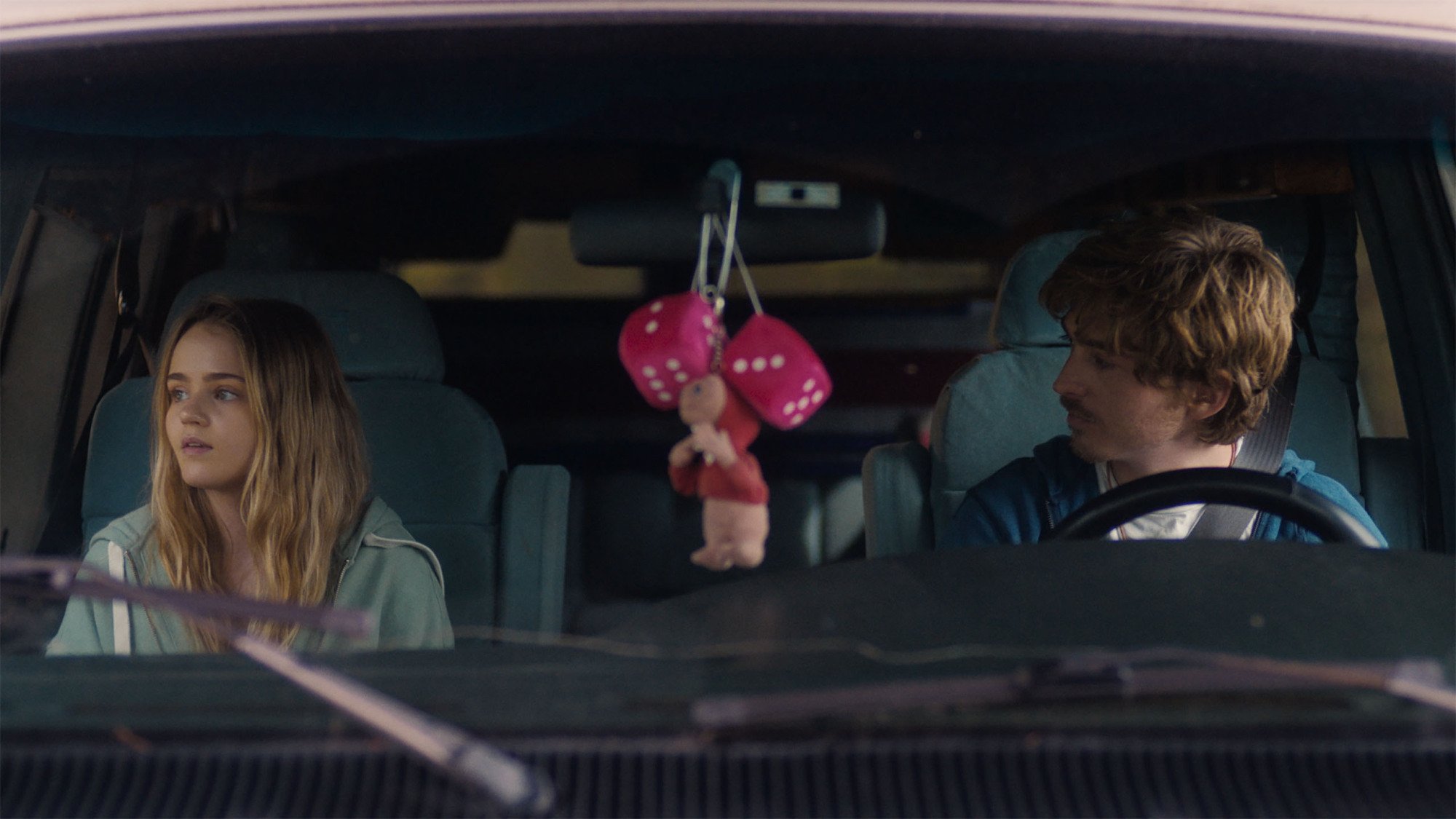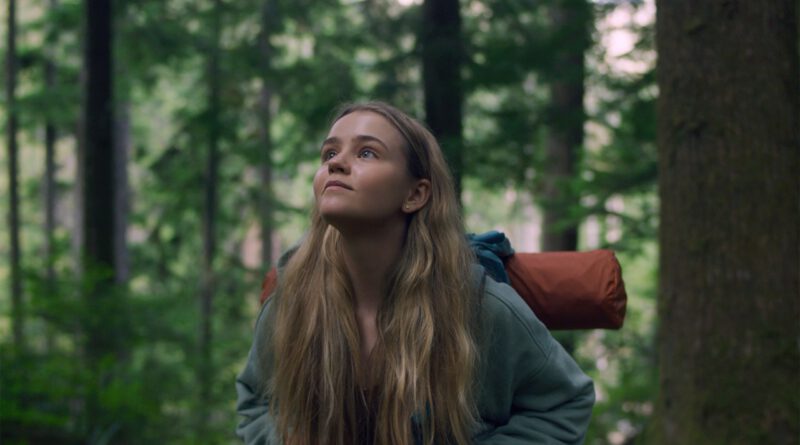‘Penelope’ review: Teen girl logs off to touch grass, literally

Few rejoinders sting quite the way “touch grass” does. For those who aren’t chronically online, the phrase essentially means you need to log off and go outside, but the deeper undercurrent is that you’ve lost touch with the real world and desperately need to reconnect to something tangible. It’s “get real,” minus the vintage appeal. Yet in Mel Eslyn’s pilot for the YA drama Penelope, the concept of touching grass proves a wholesome jumping-off point for a modern teen’s journey of self-discovery.
Written and directed by Eslyn, who also created the undersung sci-fi gem Biosphere, Penelope centers on a 16-year-old girl (Little Fires Everywhere‘s Megan Stott) who abruptly decides to log off of everything and wander into the wilderness. However, while Penelope is essentially looking to touch grass (and trees and bunnies), the show is bled free from the vitriol that typically accompanies such a stinging sentiment. Instead, Penelope relishes the wonder and freedom of cutting loose from cell phones and social media.
Penelope is a cozy fantasy set in the real world.
Though this is the story of a runaway fleeing from her family and all she knows, Penelope is not urgent with drama. There’s no grim inciting incident that spurs its young heroine to strike out on her own. Instead, the pilot, which is premiering as part of Sundance’s Episodic Pilot Showcase, begins with Penelope happily bopping around at a silent disco, where headphones allow the dancers to feel connected while not disturbing the animals of the surrounding forest. Penelope isn’t like the others, though. While they are caught up in the music and each other, she makes eye contact with a wandering wolf. Just like that, she seems destined to depart her family’s camping trip for parts unknown.
The script from Eslyn and Mark Duplass (who co-wrote and starred in Biosphere) is scant in detail, purposefully sketching Penelope’s backstory as one of a kid with loving parents who check in with her via text to remind her she’s got SAT prep coming up. As she’s played by Stott, Penelope doesn’t seem burdened by tech or the pressures of her parents; she just seems bored by them. So, she goes on a “solo hike” that leads her to a shop to buy camping supplies. She turns off the “share location” option on her phone and hops onto a train car like a Mark Twain hero, giddy at her daring.
Parents — or those of us who grew up in the Stranger Danger age— might flinch at her choices, as she hitchhikes, puts her trust in randos, and goes out of her way to make sure that her folks can’t track her down. Much of it seems like a recipe on how to become the subject of a future 20/20 special report, but Eslyn isn’t making a harrowing drama about isolation or teen homelessness. The could-be threats of the real world are softened by a color palette that is breezy and inviting, and the score, which reverberates with electronically filtered women’s voices, feels like a synth-y siren luring Penelope forward. The strangers she meets in the first episode provide help and warm smiles or curt advice, but never a reason for fear. Penelope offers us all the dream of walking into the warm woods and not looking back.
Megan Stott is pitch-perfect in Penelope‘s pilot episode.

Where much of YA shows and movies are full of snarking Mean Girls or emotionally overwrought heroines, Penelope blooms from a place of quiet reflection. As its protagonist strikes out on her own, the show doesn’t offer flowery speeches about her motivations. Instead, Stott’s wide-eyed expressions communicate the wonder, curiosity, and excitement of each step of her journey. Deceptively simple cinematography lingers on her fingers as she reaches for camping supplies in a store, all on her own. The possibilities of the world are just at her fingertips! A sincere grin splashes across her apple cheeks as she overcomes a financial obstacle with a clever solution. Her physicality is alive but never anxious, like a kid waiting their turn at a diving board. And so, through her every motion, Stott urges us to dive in with Penelope.
Still, as a grown-up watching the show, it’s easy to slip into our concerns about the dangers we know lurk outside Penelope’s dreamy tunnel vision. Perhaps we wonder what was so bad that she had to run away to begin with. The only concrete clue the pilot offers is a text that she doesn’t send: “Mom… Was I a happy kid?”
Implied here is that despite seeming to have it all — a phone, Apple Pay, loving parents who support her education and take her to things like silent discos — Penelope feels forlorn for some reason she can’t put her finger on. So, she follows a trail back to nature to discover who she is outside of social media and societal expectations. Who might she be in the woods with herself as her only company?
We’re invited to share in Penelope’s awe and excitement as POV shots allow us to vicariously experience the thrill of literally hopping onto a speeding train, watching the world rush by. But there’s still a distance between us and our eponymous heroine.
Mel Eslyn gives Penelope her space.
It’s a thrill to watch a TV show that doesn’t fill the need to spell everything out for you. (See also: True Detective: Night Country). Through her direction, Eslyn gives us access to Penelope’s unspoken concerns and wishes, but she also allows the character some space for mystery. A scene where she walks into the woods and out of focus reminds us that this journey is hers, and we are witness only to what she allows us. When she takes a photo of nature on her phone but looks dismayed at the result, there’s no dialogue explaining why. Later, a conversation with a traveling musician (Austin Abrams) gives us some clarity.
Penelope asks gently why he’s bothering touring at tiny coffee shops when Spotify exists. Why not “join this century”? As it turns out, his experience with online communities has also felt lacking. He explains that playing music live versus distributing it via the Internet is the difference between visiting a river and seeing a picture of a river. The difference is being there, a romance with the real that is undeniably beguiling through the eyes of these kindred spirits.
Based on the first episode, it’s hard to guess where Penelope might go next. Will this play like a road trip story, bringing the girl from one curious location to another? Will the focus shift away from Penelope and to her parents, who have been left behind to worry and wonder? Will it combine those could-be threads in order to allow fantasy clash with anxiety? I couldn’t say, but I can’t wait to find out. As pilots go, Penelope is absolutely enchanting.
